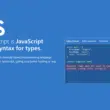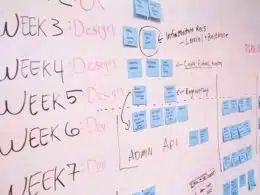Here’s why it’s important to employ specialized software engineering techniques for the development of various types of software and applications.
Despite there being common fundamentals, practices, stages, considerations and importances across most software systems, different systems require specialized software engineering techniques to support their design and development processes. This is because different systems cope with diversities in terms of requirements and demands. Therefore, a general sequential development process isn’t always ideal.
With that in mind, this guide goes into more depth to explain the importance of employing specialized software engineering techniques.
So, let’s jump right into it!
Differentiating Factors of Software Systems That Push for Specialized Software Engineering Techniques
Cost and Frequency of Software Change
One main differentiating factor in software systems are their costs and the frequency of change it undergoes. This is because alterations or changes for certain systems can be very costly, for instance, embedded systems in consumer devices and appliances. Whereas other systems, are subject to more frequent changes in order to comply and fit in with the changing requirements. This is mainly a consideration for business systems.
Thus, systems that have expensive alterations, need more extensive upfront analysis, ensuring the predetermined requirements are consistent and applicable. At the same time, extensive validation has to also be performed, ensuring the final system is able to fulfil the predetermined specifications.
All in all, this may make it seem that the system isn’t cost-effective especially for systems constantly and rapidly needing to undergo changes.
The Proposed System’s Non-Functional Requirements
Moving on, the most prioritised non-functional requirements differ depending on the particular systems. Some systems require trustworthy and more secure software, such as, banking systems.
Another example is a real-time aircraft control system which places a high priority on security and safety compared to other systems that don’t require such safety techniques like interactive gaming programs. Similarly, the sophisticated and well-designed User Interface (UI) of interactive games isn’t a requirement for safety-oriented control systems.
The Proposed Software’s Lifetime and Delivery Schedule
Furthermore, another differentiating factor of most systems is the software lifetime and delivery schedule. Typically, many web-based systems have a shorter lifetime, whereas major command and control systems possess a longer lifetime, spanning up to tens of years. Thus, software systems can differ in terms of demands for the completion date and its deliverables as well.
Some systems demand a reduction in delivery time if they are to be used straight away and have a short lifetime, hence requiring a more rapid and faster approach to developing and delivering the system within the deadlines.
For instance, using scripting languages, prototypes etc. Conversely, this approach is inappropriate for systems with a long lifetime, that require techniques permitting long-term support, like design modelling.
Conclusion
Overall, as there are different types of software systems, there isn’t a universal set of software applications or techniques applicable for all. Hence, the techniques and methods, as well as technologies and tools, depending on the specific application being developed, requirements set by the stakeholders and background of the development team.
In this post, we identified and explored 3 differentiating factors that stress the importance of specialized software engineering techniques for the development of different applications.
We hope you found this guide helpful and insightful and feel free to share this post with your fellow software engineers!













